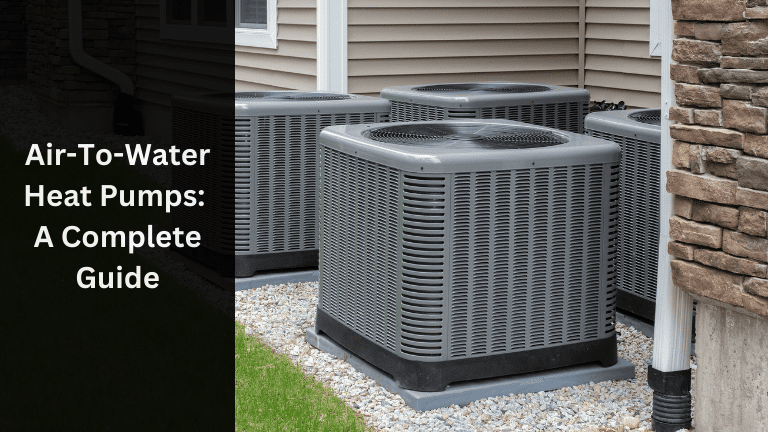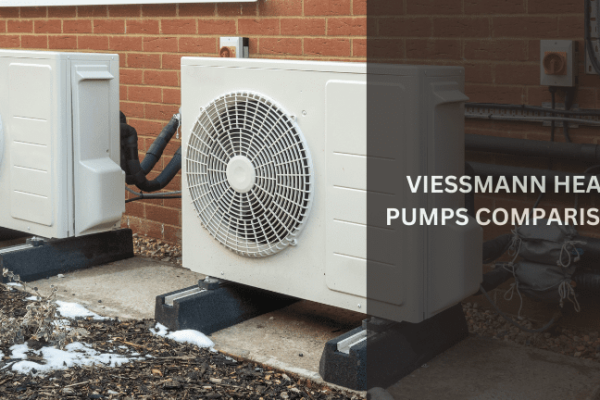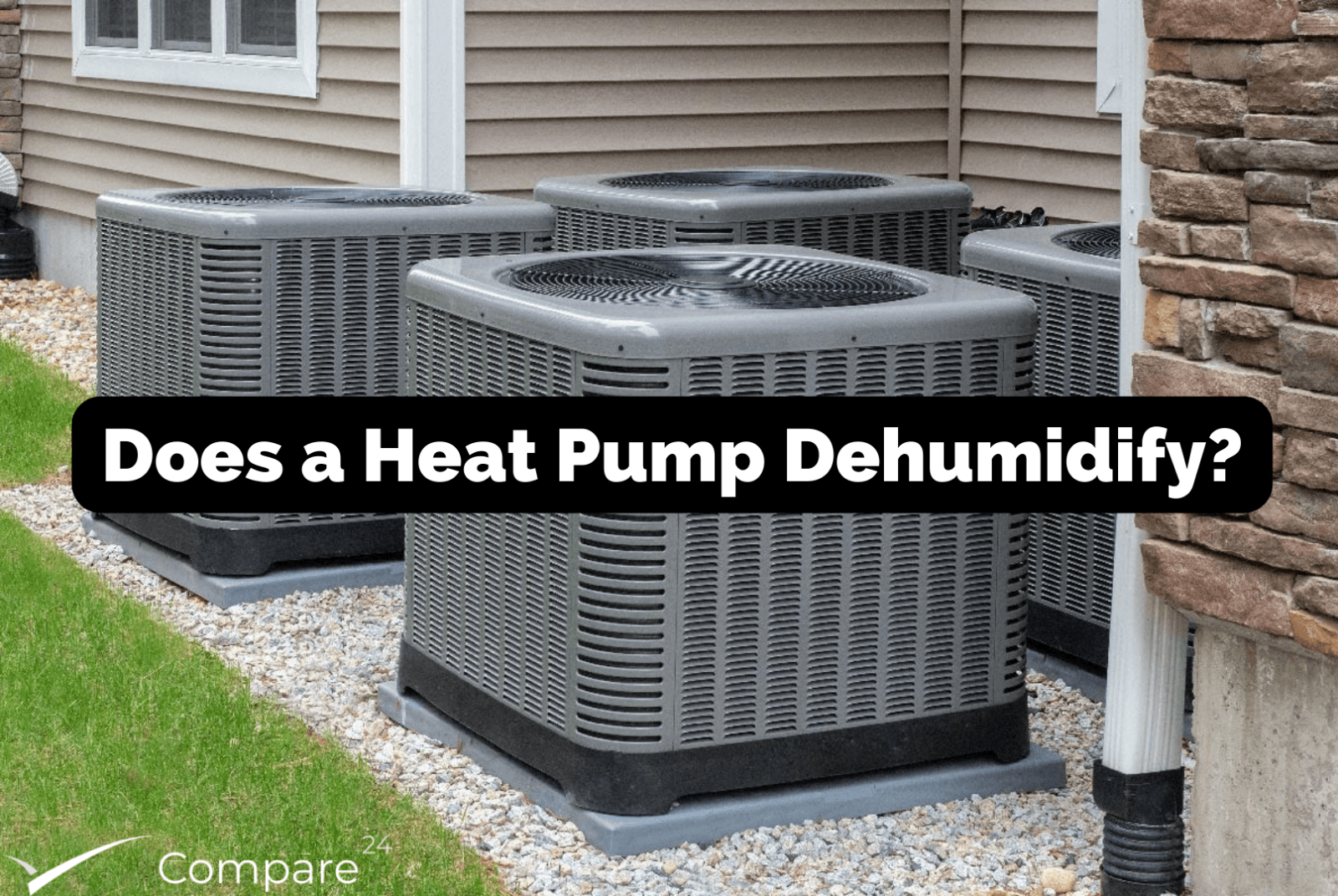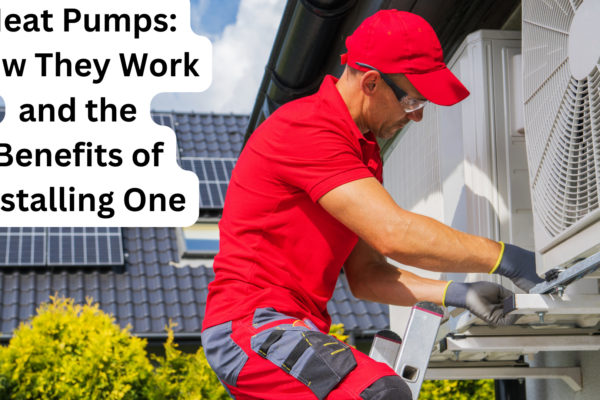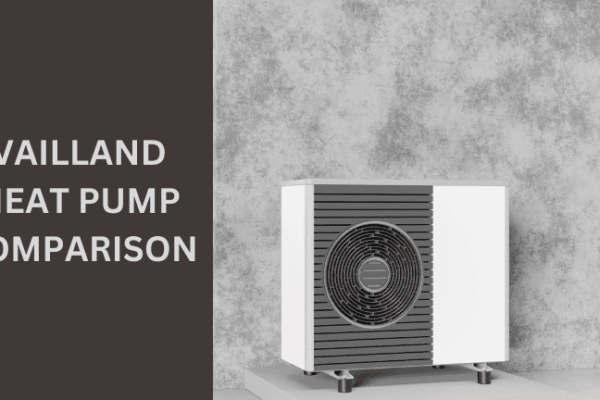Heat pumps can help you reduce your electricity consumption. Depending on the climate, a heat pump can produce up to four times more heat than an electric resistance heater while using the same amount of electricity.
There are two main types of heat pumps, namely air source and ground source heat pumps. The focus of this guide is, however, on air-to-water heat pumps which are a type of air source heat pump (ASHP).
In this guide we will go over how an air-to-water heat pump functions. We will also look at the pros and cons of an air-to-water heat pump and how it differs from other heat pumps. Finally, we will compare the costs of installing an air-to-water heat pump.
How Does An Air-To-Water Heat Pump Function?
The air outside your home is an abundant source of energy. Air source heat pumps transfer the latent energy from the air outside into your home using vapor-compression refrigeration. Vapor compression is a reversible process that can be used to either heat your home in winter or cool it in summer.
Air-to-water heat pumps are one of two types of air source heat pumps, the other being an air-to-air heat pump. While they both work by drawing energy from the air outside to heat or cool your home, there is one critical difference between them.
Air-to-air heat pumps distribute the warm or cool air generated using the ducts in your home. Air-to-water heat pumps distribute warm or cool air through water using radiators and the underfloor heating in your home. Is there any specific advantage to an air-to-water heat pump over an air-to-air heat pump?
Air-to-water System
An air-to-water heat pump is a water-based system for heating and cooling.
Pros Of An Air-to-water System
- An air-to-water system can be paired with a water tank to provide hot water as well.
- Most households already have radiators and underfloor heating systems. In the UK, 90 percent of homes use radiators according to the English Housing Survey 2019-2020. This means air-to-water systems are more compatible with the existing designs of most homes. This makes installing one much easier as there are no additional fixtures that need to be added to accommodate the system.
Cons Of An Air-to-water System
- An air-to-water system is typically more expensive. Depending on the brand and size, an air-to-water system can cost seven to ten times more than an air-to-air heat pump.
Air-to-air System
An air-to-air heat pump is an air based system that can both heat and cool.
Pros Of An Air-to-air System
- If you are pressed for space around your home, then an air-to-air system is a better alternative. Air-to-air systems use ducts instead of radiators to circulate warm or cold air.
- The unit and installation for an air-to-air system will cost much less than an air-to-water system.
Cons Of An Air-to-air System
- Less compatible for most homes. If your home does not have a duct system this adds to the installation cost.
- They do not provide water heating. This means you need something else to heat your water with. An air-to-water system provides you with both hot water and space heating.
Which should you go with? An air-to-water system costs more. The cost is somewhat justified if you consider that an air-to-water system can provide both space and water heating. Also, if your home already has radiators, the installation will be much easier.
On the other hand, the significantly cheaper air-to-air system might be more suited for you. Get several quotes and compare to see whether the added cost of an air-to-water system would make sense for you.
How Much Does An Air-to-water Heat Pump Cost?
Generally, heat pumps cost more than either a furnace or air conditioner. It is important to remember, however, that heat pumps combine the functions of both furnaces and air conditioning.
Air-to-water heat pumps cost less than ground source heat pumps. The average cost of an air-to-water heat pump is between £8,000 to £18,000. The average cost of a ground source heat pump is between £20,000 to £35,000.
Fortunately, you do not have to pay the full price. There are some government renewable energy incentives you can take advantage of to reduce the cost of a heat pump. The Boiler Upgrade Scheme (BUS) offers a rebate of up to £5,000 for consumers that switch to heat pumps. You can find out if you qualify for the scheme here.
| SYSTEM | COST (£) |
| Air conditioner | 1,500 – 4000 |
| Furnace | 1,500 – 3000 |
| Air-to-water heat pump | £8,000 to £18,000 |
| Air-to-air heat pump | £1,600 to £3,100 |
| Ground source heat pump | £20,000 to £35,000 |
Is An Air-to-water Heat Pump Worth It?
Heat pumps have several advantages. Firstly, they are more efficient than traditional heating methods like furnaces. A heat pump is up to four times more efficient. This means for every watt of energy it uses, it produces up to four joules of heat.
This is however, dependent on your climate. The efficiency of a heat pump is directly correlated to outside temperatures. Heat pumps excel in temperatures above zero. The bigger the drop in temperatures below zero, the bigger the drop in performance.
This is more of a factor with air source heat pumps than it is with ground source heat pumps. Geothermal or ground source heat pumps draw their energy from the ground which is a much more efficient store of energy than ambient air.
Secondly, heat pumps provide you with both heating and cooling. They replace both an air conditioner and a furnace. In some cases, a heat pump is a cheaper alternative to both. Get quotes and compare them against the combined cost of a furnace and air conditioner combined.
Thirdly, heat pumps are more environmentally friendly. Heat pumps like the Vaillant and Viessmann ranges use R-290 refrigerant which is less harmful to the environment. R-290 has 500 times less global warming potential than traditional HFC refrigerants still used in conventional HVAC systems.
The added advantage of air-to-water system is that it also provides water heating as well so it essentially provides three functions. It is also far much easier and consequently far much cheaper to install than a geothermal system.
